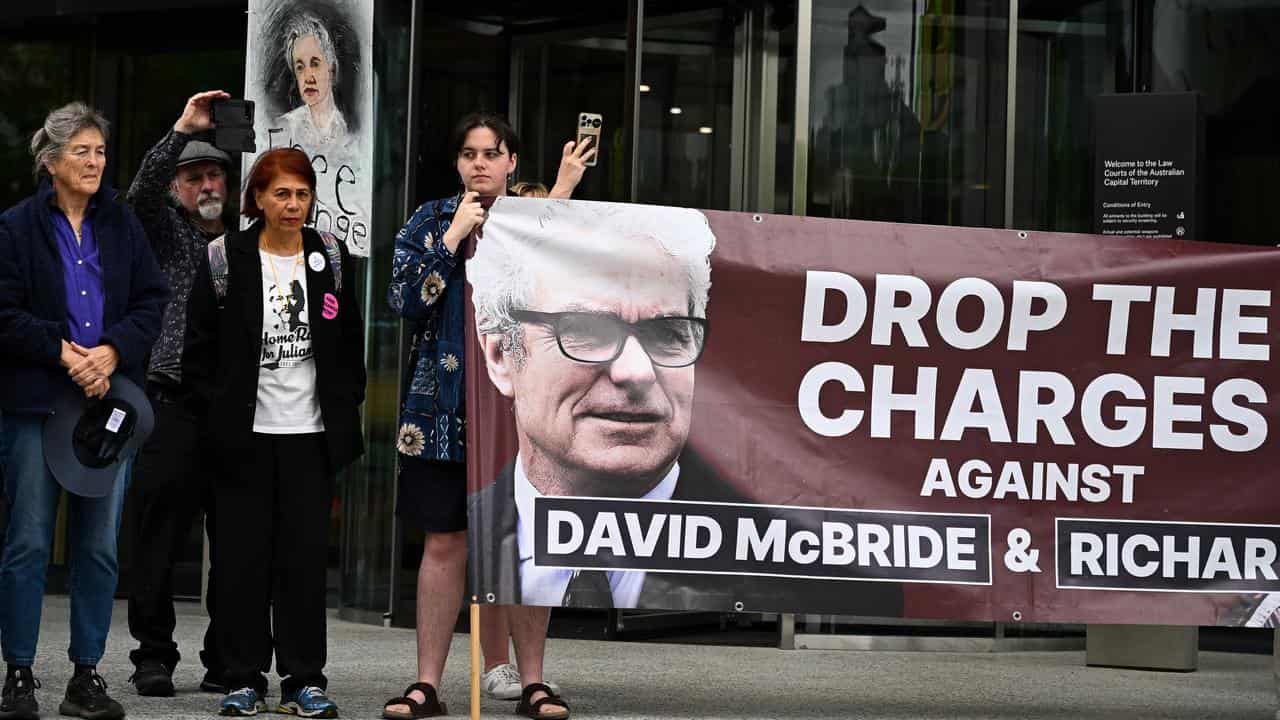
Crossbenchers have called for the prime minister and attorney-general to pardon David McBride, who was sentenced earlier this week to nearly six years behind bars for leaking classified information.
The former military lawyer pleaded guilty to leaking secret defence material that exposed allegations Australian troops committed war crimes in Afghanistan.
McBride was sentenced to five years and eight months' imprisonment, with a non-parole period of two years and three months. His legal team has indicated they'll launch an appeal.
Independent MP Allegra Spender and Senator David Pocock were joined by Greens and one Liberal MP, Bridget Archer, in signing a letter addressed to Prime Minister Anthony Albanese and Attorney-General Mark Dreyfus demanding they pardon McBride.

An inquiry later found credible information about 23 incidents of potential war crimes in Afghanistan, which involved the killing of 39 Afghans between 2005 and 2016.
"David McBride is the only person to go to jail for Australian wrongdoing in Afghanistan. Yet he is not the one who committed the war crimes," Ms Spender said.
"Tuesday’s prosecution is a shameful reflection of our broken whistleblower protection and secrecy laws and has sent a chilling message to whistleblowers across Australia.
"We need to protect Australians who have been brave enough to put themselves and their families at personal, financial, and other risks to tell the truth to power.”

The letter also calls for the prosecution of tax office whistleblower Richard Boyle to be dropped and serious reform for whistleblowing and secrecy laws.
It also called for the establishment of a whistleblower protection commission, with work to begin immediately so it could be up and running in 2025.
Boyle faces trial after publicly alleging the ATO had used heavy-handed tactics to recover debts, and being charged with recording private conversations and taking photos of confidential information.
"We urge you ... and to send a clear message to genuine whistleblowers that they are both respected and protected," the letter said.









